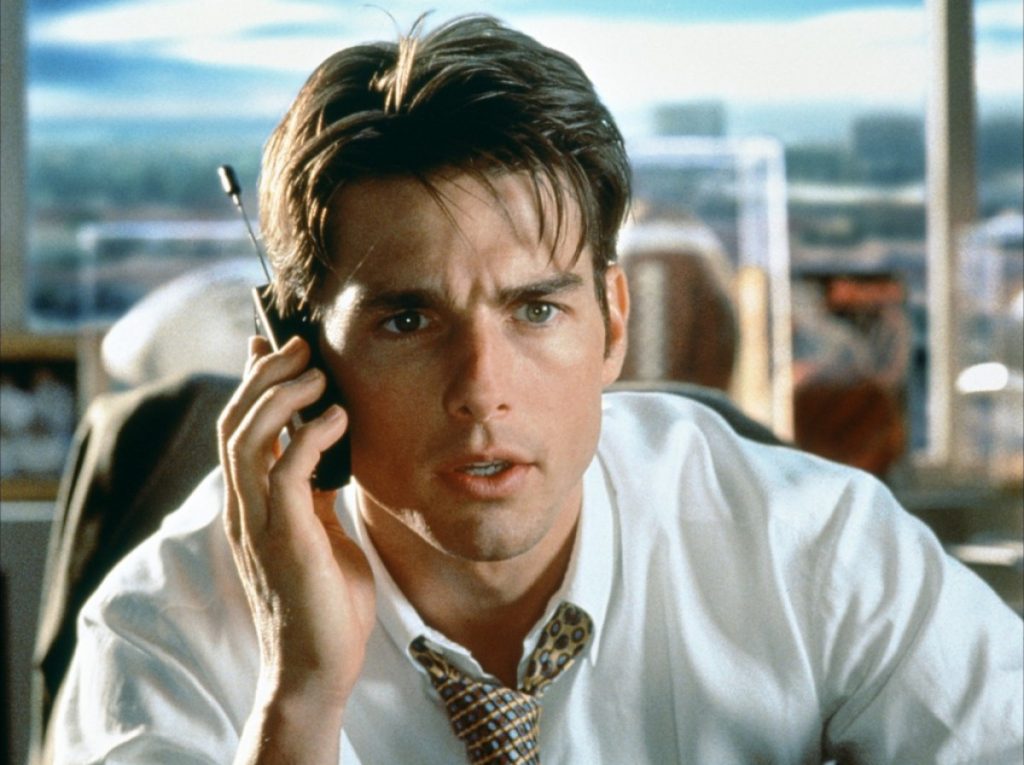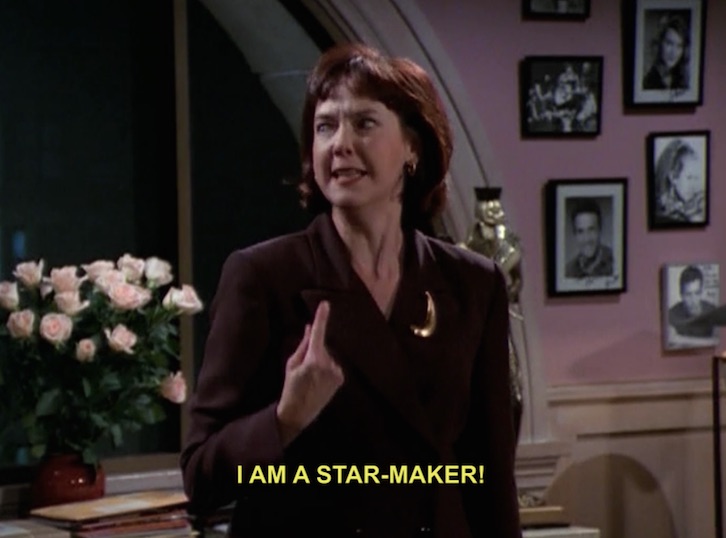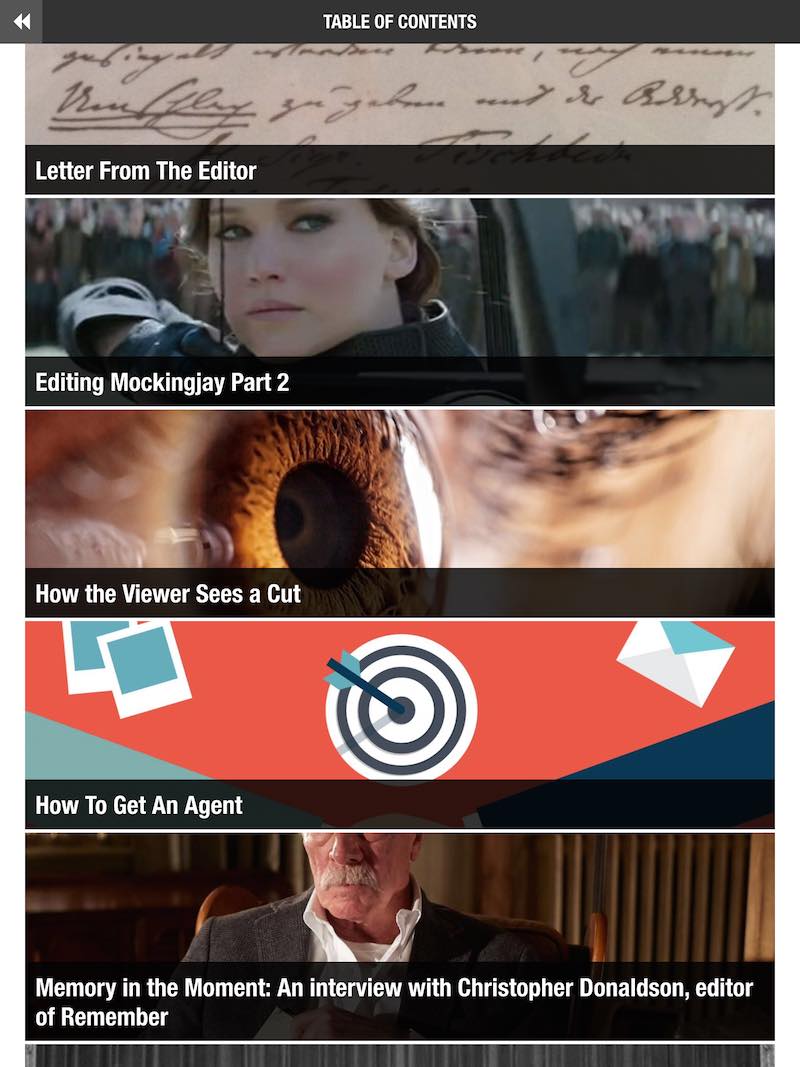How To Get an Agent as a Film Editor

If you’re an editor looking to get an agent, then you should definitely check out the article I wrote for Aotg.com’s The Assembly magazine, which features plenty of practical advice for film editors on why you need an agent, how to get one, and what to do with them when you sign one.
As part of the research for the article I was fortunate enough to interview a Top UK Agent, a Working Editor with an agent and an (ex) Agent’s Assistant who I agreed to provide anonymity in exchange for candid answers.
So jump over to Aotg.com to download the latest free edition of the very excellent Assembly to read a ton of great articles on the art, craft and business of film editing, including my article on how to get an agent.
In this blog post I’ve collected together some of the best quotes that didn’t make it into the article, to give you some further insights into the world of getting an agent as a film editor.
Insights from a Top UK Agent

It’s about trust and relationships. A lot of my clients have been with us for years, and that’s how we like to work as an agency. We don’t want a high turnover. So you’ve got agencies that will have a much longer list, and they’ll just deal with it and they won’t look after clients in the same way, and clients will come and go.
It is awful that you have to be established to have an agent. It would be better if there were more young agents prepared to be taking people on.
If you were an new agent starting out, then you’re more likely to be going out and looking for people, if you’re an established agent people are going to come to you, or producers. It was a producer who rang me about a new editor. “I’ve got this guy, he’s doing TV, but you’ve really got to meet him, he’s going to go a long way.” So the producer knows he likes working with us, and so they can say to the editor, these are good agents
One of my colleagues would take on someone who had some interesting indie credits but we tend to look at people who are going to be employable, people we are going to suggest for TV drama and films and are likely to get the job, or likely to get the script sent to them.
The stage that someone gets an agent is a long way into their career. It’s well beyond the assistant and one credit stage. The people who come to us have quite a long list of credits.
[How agents can help manage difficult situations]
I think in sticky situations it’s very important to have an agent who you trust. When people come to see us, we don’t sit there saying “come to us, we’ll get you feature films, we’ll do masses of things.” We sit and have a very realistic conversation, which actually means so people don’t want to be repped by us, you know. We’re very likely to be telling a few home truths – with your CV, I’m very sorry, without a lucky break, it’s not going to happen. Which is not what you want to hear if you want to be doing feature films. So then they’ll go to someone else who will tell you “I will get you the world” and it’s lovely if they can and do, but my feeling is that they can’t and they won’t. But again, it’s whether you’re realistic about your own career.
If everything goes wrong on a movie, it goes wrong in post-production when they realise that what they’ve shot isn’t quite what they thought it was, and whose fault is that? Well it’s not the director’s fault is it? It’s got to be the fact that the editor’s putting it together wrong. They’re aren’t many films that have more than one DP, or more than one Designer, or anything like that, but how many films do you see with four of five editor credits – or composers are the other ones. And so it all goes wrong in post-production and someone has to take the blame, and who is that going to be – that’s going to be the editor.
[On changing editors mid project]
So I’ll get calls from producers saying “We need a fresh eye” and “we just need an editor for two weeks”, and it isn’t two weeks, it’s usually 6 or 8, if not 10 weeks. And some of my editors do go in, but equally you know if one of yours is going in, someone else is getting chucked out. And you can’t always make it all right. Either sometimes they want to leave, or they are made to go.
We can advise whether someone should leave or hang in there. And we can be supportive and try and talk to the producers and try and calm things down a bit when they get ridiculous. But on the whole if the director and producer want an editor to go, I’m there then to make sure they get a decent credit, and we’d make sure credit is negotiated fairly – you know; how long had they been on the film etc.
Anyone in the industry will know that it’s very rarely the editor’s fault. And it can be a personality thing, you know, they’re really just not getting on.
You will have lots of agents in America where they’re putting everyone forward for everything, where as we will be a bit more discerning. And we just know our clients very, very well, we know their character, we know their tastes, we know what’s going on in their personal lives. They’re very close relationships, so we’re better able to help them make good decisions.
[On Approaching Agents]
It’s not hard to do your research these days. Look at the website, look at the agents who rep editors. Look at the editors who we rep across the board. You can email individually any of us. So do it intelligently. Only approach one person at one time within an agency.
Get in touch with the assistant to an agent, and see that they’re building a list, and see if you’d be a good fit for them. Talk to producers – ask which agents they rate. We do get quite a few recommendations from producers.
A clear CV full of pretty mainstream work. TV drama, feature films. Good short films. But it’s not good just having done lots of brilliant short films. And so you need good interesting work, so if you’ve just done 6 years of low rate TV, we’re not going to be interested. They need to be recognisable credits.
And if they’ve worked with a producer or director that we know, two or three times, that says quite a lot as well, that they like them and want to work with them again.
Ultimately they’ve just got to be a sure thing, and be able to deliver the goods. They need to be creative and fast.
Thoughts from a Working Editor

The main thing for me, is the awkward part of the process is arguing the money, and so she’ll argue the money and say if it’s quite right and also bigging yourself up – she can do all of that, rather than me. And also if I have a gripe with things, I can phone her and take it out on her. And if it’s serious she can get involved. So it’s just a good back up to have.
She’s really good. She does things in the year, where she’ll have meals once or twice a year, where I can meet directors and producers and she’ll get everyone in a room and you can meet people. And she’ll have drinks for everyone in the agency too so you can meet other people who are on her books as well.
Get an agent as soon as you can. It’s just another person to help get you work. But be prepared for a lot of ‘no’s’. I went to a couple of other agents and I got a few ‘no’s’.
Agents don’t always find you work, but she sends me scripts, and keeps me up on the times when there’s no work. They’re good to have in your back pocket.
The Inside Scoop from an (Ex) Agent’s Assistant

An agent is going to be approached with jobs and they’re going to try and get their roster work through conversation and networking and those kinds of things, but if they’re approached for a commercial and they have four people on their roster who have done commercials, they’re only going to put those people forward. So you need to have a niche market or you need to have something that can show for itself, so they have a reason to put YOU forward, in terms of everyone they’re representing.
Some of the experiences that I had, people who had established careers and the agent was taking a percentage off their freebie work, or jobs they did for friends, or people they’d worked with previously and they had gotten themselves that work. Or if you’re getting a thousand dollars for two weeks work from a friend, ideally you wouldn’t be giving a percentage of that, so establishing a threshold.
Work through those details and see how open they are to… negotiations, it’s also challenging for them because they don’t want you to be constantly negotiating them out of their 10-15%. Some may not be open to that conversation at all, and so you have to determine if you’re comfortable with sacrificing that just to have an agent.
It’s hard to have these conversations in advance, but you’re putting a lot of trust in that person, so I think it is important to say to them, here’s three buckets of the kind of work I do; I do work for charities, or family members or a freebie for a friend, I do large features and I’ve always worked with the same director for ages, and I do this other kind of work. And asking would that make any difference to you? How would we work with these different kind of models? And see what they say. I would ask the question and you just never know what you’ll hear back.
And with an agent you get that negotiating power, and they’ll take on the work I think a lot of people aren’t interested in – negotiating the pay, handling the paperwork, and all that stuff – so that can be great, but I think it’s about considering what you’re looking for in an agent.
You might get to the stage in your career where you’re going to get the work regardless (because you’re famous enough) and they’re doing the paperwork on your behalf. So really if you’re the sort of person who prefers to approach these things independently and manage your own relationships, and you’re going to work with the same director for the rest of your life. You can have an agent, but you’re not going to really need one.
Good agenting vs bad agenting really depends on where you are sitting. So if you are someone who has a really developed filmography then your agent is your best friend, they’re trying to get you work because it helps them too, and they’ll be in touch a lot, and they’re putting your name forward for things, and they’re continuing conversations and that sort of thing. And they have your interests at heart when it comes to seal the deal.
If you don’t have an established filmography, you may never hear from your agent and they may not be putting you forward for things. So I’m sure there’s a natural percentage of any roster that’s kind of dormant, and whether that’s because they were signed when they were hot and that’s kind of faded away, or took a chance on them but kind of forgot to put them forward for things.
At the same time, as an agent, that’s kind of smart, because you want to spend your time where it’s going to pay off. So I definitely saw people never getting called back, I saw people being asked for the $25 dollars, whatever job they worked on. And for me that was really uncomfortable, because- knowing the work that people are doing to make that money, and seeing on the other side the level of effort that was being put in, that can be frustrating.
Good agenting should make the person being represented feel good about the relationship with their agent, and that they can trust them, and that they have their best interests at heart. But then also that they can approach them with questions or concerns, and that they’re accessible to them, because not answering the call, that must be the infuriating part of the whole relationship.
Older agents might have established their roster at a time in their career, but now they are just coasting. So you just never know, when you’re looking at a roster, what it really means or how real it is. So don’t necessarily take who is on their roster to indicate a really strong agent. Chances are that if they have wall-to-wall celebrity names, or really recognisable people on their roster, they probably are well established, but then you have to think if I’m up against all these people dividing up that person’s attention, am I going to get what I need out of this person?





